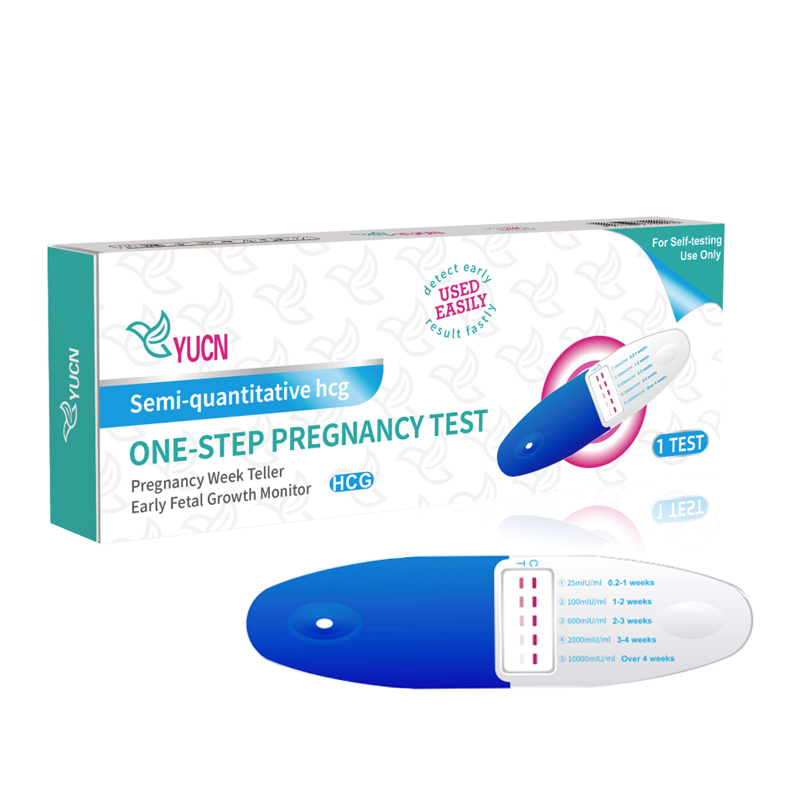Nov . 26, 2024 22:22 Back to list
Understanding the Importance of Fecal Occult Blood Testing for Early Disease Detection
Understanding the Occult Blood Fecal Test A Crucial Tool in Colorectal Health Screening
Colorectal cancer is one of the most common types of cancer worldwide, and early detection is key to improving outcomes and survival rates. One essential method for screening is the occult blood fecal test, often referred to as the fecal occult blood test (FOBT). This test plays a significant role in the early detection of colorectal cancer and other gastrointestinal disorders.
What is a Fecal Occult Blood Test?
The fecal occult blood test is a non-invasive screening procedure designed to detect hidden (occult) blood in the stool. Blood in the stool may be an early sign of colorectal cancer, polyps, or other gastrointestinal issues, but it isn't always visible to the naked eye. Hence, the FOBT is an effective way to identify potential problems before symptoms develop.
There are primarily two types of FOBTs the guaiac-based test and the immunochemical test
.1. Guaiac-based FOBT This test uses a chemical reaction to detect the presence of hemoglobin in the stool. It requires adherence to a specific diet for several days before the test, as certain foods can produce false positives or negatives.
2. Immunochemical FOBT (iFOBT) This newer test is more specific and does not require dietary restrictions prior to testing. It uses antibodies to detect human hemoglobin and is generally considered to be more sensitive than the guaiac-based test.
Who Should Get Tested?
The U.S. Preventive Services Task Force recommends that average-risk adults begin regular screening for colorectal cancer at age 45. Individuals with a family history of colorectal cancer, personal history of inflammatory bowel disease, or specific genetic syndromes may need to start screening earlier or undergo more frequent testing.
Regular screening via FOBTs is advisable since colorectal cancer often develops from precancerous polyps over several years. Catching these changes early can lead to the removal of polyps before they turn cancerous, significantly reducing the risk of developing cancer.
occult blood fecal test

How is the Test Conducted?
Conducting an FOBT at home is relatively straightforward. The individual is provided with a kit that includes a set of instructions, collection sticks, and special containers for stool samples. The process generally involves
- Collecting small samples of stool from multiple bowel movements, typically over the course of three days. - Placing the samples in the provided containers. - Sending the collection back to a laboratory for analysis.
Results are usually available within a week, and healthcare providers will discuss the findings with the patient.
Interpreting the Results
A positive FOBT result means that blood was detected in the stool, which can be due to various factors, ranging from benign conditions like hemorrhoids to more serious issues like colorectal cancer. However, false positives can occur due to dietary factors, medications, or other health conditions. Therefore, if the test result is positive, it is normal practice to follow up with further diagnostic procedures, such as a colonoscopy, for definitive diagnosis.
Conversely, a negative result does not rule out the possibility of colorectal cancer entirely, especially if a person has other risk factors or symptoms. Therefore, regular screening and discussions with healthcare providers about individual risk factors remain critical.
Conclusion
The fecal occult blood test is a vital component of colorectal cancer screening that can lead to early detection and treatment, ultimately saving lives. Encouraging individuals to participate in regular screening can significantly impact public health, reducing the incidence and mortality associated with colorectal cancer. It is essential for individuals to engage in conversations about screening options with healthcare providers, especially as they reach screening age or if they have other risk factors. Remember, early detection is key, so take charge of your colorectal health today!
-
Highly Accurate hCG Pregnancy Test Strips - 5 Min Results
NewsAug.02,2025
-
Premium Empty ABS Plastic Cassettes: Durable & Lightweight Storage
NewsAug.01,2025
-
Accurate Cocaine (Coc) Rapid Test Kit | Fast & Reliable Detection
NewsJul.31,2025
-
Accurate HCG Pregnancy Test Strips | Fast Home Use Kit
NewsJul.31,2025
-
Reliable Early Pregnancy Test Kit Supplier - Multi Plastic Cassette Options
NewsJul.30,2025
-
Transferrin Rapid Test Cassette – Reliable Tumor Marker Detection
NewsJul.29,2025

